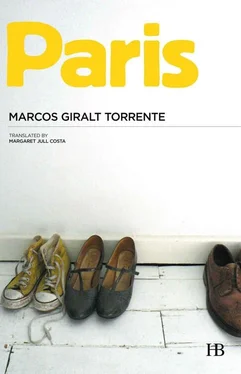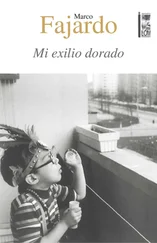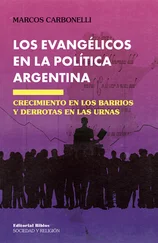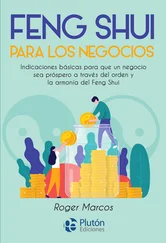Marcos Giralt Torrente - Paris
Здесь есть возможность читать онлайн «Marcos Giralt Torrente - Paris» весь текст электронной книги совершенно бесплатно (целиком полную версию без сокращений). В некоторых случаях можно слушать аудио, скачать через торрент в формате fb2 и присутствует краткое содержание. Год выпуска: 2014, ISBN: 2014, Издательство: Hispabooks, Жанр: Современная проза, на английском языке. Описание произведения, (предисловие) а так же отзывы посетителей доступны на портале библиотеки ЛибКат.
- Название:Paris
- Автор:
- Издательство:Hispabooks
- Жанр:
- Год:2014
- ISBN:9788494228452
- Рейтинг книги:5 / 5. Голосов: 1
-
Избранное:Добавить в избранное
- Отзывы:
-
Ваша оценка:
- 100
- 1
- 2
- 3
- 4
- 5
Paris: краткое содержание, описание и аннотация
Предлагаем к чтению аннотацию, описание, краткое содержание или предисловие (зависит от того, что написал сам автор книги «Paris»). Если вы не нашли необходимую информацию о книге — напишите в комментариях, мы постараемся отыскать её.
Paris — читать онлайн бесплатно полную книгу (весь текст) целиком
Ниже представлен текст книги, разбитый по страницам. Система сохранения места последней прочитанной страницы, позволяет с удобством читать онлайн бесплатно книгу «Paris», без необходимости каждый раз заново искать на чём Вы остановились. Поставьте закладку, и сможете в любой момент перейти на страницу, на которой закончили чтение.
Интервал:
Закладка:
“It’s not his fault. After all, the way we behave always has its roots in childhood, and that’s especially so in his case. We are slaves all our lives to what happened in our early years, and the circumstances in which we spent our childhood leave a very deep mark. The worst thing that can happen to anyone is to remain enslaved to the past, to become obsessed with the evil done to them by others, because often the worst evil was done by the person who loved them most. Someone who was rich, or was brought up to think he was rich, will resent it when, years later, he goes bankrupt or realizes that he wasn’t rich at all, and will think that other people owe him something. The death of a father or mother can mess you up for the rest of your life. Sometimes it doesn’t even take a trauma. We are so malleable as children, and our parents’ view of life puts down such deep roots and dominates our way of feeling and thinking. That can be very harmful, and parents need to take great care to ensure that their children don’t inherit qualities or views that are already a burden to them.”
My mother’s words persist and seem to speak in veiled terms of her and me, a suspicion I find distressing. I don’t want any parallelisms, I don’t want her to know what I’m thinking or for her to need only look at me to guess my state of mind, I don’t want to discover in her the child she once was and never will be again, nor do I want that child to resemble me. Her words accelerate and grow tangled, and I can only stop them by forcing my thoughts to move more slowly, pausing at random over certain phrases, fixing on bits and pieces that I repeat and preserve with the intention of building a wall to block out the conclusion I can see approaching. There is, however, no escape. My mother isn’t going to stop, and every word she says, even though I try not to hear it, will be further proof of her univocal dedication to me, of my infuriating, tyrannical onliness.
“It’s absurd. Life deals us quite enough blows as it is without exposing us to still more. When we’re growing up, for example, there’s a moment when the whole solid world we’ve been living in so snugly suddenly collapses around our ears, and it seems to us a vile trick. That’s when we realize that time is passing and that we have almost no chance of putting things right. We feel deceived and long for an innocence we will never recover. A lot of people never get over it and let life slip by, thinking that they’re the only people who’ve been through that same experience. But we have to get over it, because we don’t have to look very far to keep finding reasons to lose heart.”
There’s no escape, no chance to protest or rebel. There’s nothing to be done.
“I’ve tried to leave you free, tried to do everything as naturally as possible, for you to have all the necessary information so that you could judge for yourself and so that there would be no duplicity, no shadowy areas between us. But there are things that are beyond my control and that I haven’t perhaps really kept a grip on. If that’s so, then you’ve got to be strong and just think of yourself. I’m not always going to be here. .”
There’s no escape. None.
“I can put up with a lot. I know what it’s like to have the world fall in on you and to feel that life isn’t as sweet and innocuous as you had been led to believe. I’ve had my share of suffering, too, but I’ve been through it and left it behind me, and above all, I haven’t burdened other people with my problems. .”
There’s no escape. None. Only time and death and forgetting and any children I myself might have.
“Selling the apartment, for example. Delfina is right when she says that it’s your inheritance, that I should think about you before I sell it, because you haven’t had a normal father who’s been with you every day, and the apartment would be a way of compensating you. But Delfina doesn’t know, and neither do you, that there are reasons why it has to be like that. There are reasons for my silence, reasons I haven’t told you about before. .”
There’s no escape. None. My mother’s words rise up and cut the air, trying to merge, and her melodious voice wraps around me and speaks of herself alone, and no longer of me or of her and me together. “Listen, everything you heard yesterday is true. We’ve never spoken about it, but it’s true. I didn’t tell you, because I felt the time wasn’t right. That’s why I kept silent, that’s why I hesitated.” This is it , I think. This is the mouth of the deep hole. My mother is going to climb down into that hole and reveal everything she has never told me, and everything is going to end in order to begin again. “There are things you don’t know,” “Delfina is right,” “Everything we talked about yesterday is true.” There it is. The mouth of the black hole. It wasn’t pure chance. It couldn’t be. She spoke so that I would hear her, so that we could talk today. That’s where we’re heading . “Listen. I haven’t been a poor, unfortunate wretch, and I don’t regret anything. I was very young when I met him. You know that, because I’ve told you. What you don’t know, and what you heard yesterday for the first time, is that I left home and ran away with him. And that’s true. I fled and said nothing to my father or Delfina. But that has nothing to do with my life since then. That doesn’t explain his behavior or mine. I ran away with him because it was clear that I was going to at some point. Maybe I could have done it differently, but I would have left eventually. The way Delfina would have liked me to have done, perhaps, taking all the appropriate steps and securing the blessing of my family, but I would have left. I was in love. I loved him. Running away with him just precipitated matters, that’s all.” My mother is speaking hesitantly and without pause. I’m listening, I know what she’s saying, but I try to focus only on snippets of it. I don’t want to listen. I prefer silence to premonitions and honesty; I prefer deceit to kindness and having our bedroom doors open at night, with the light from one room illuminating the other. Paris , I think. “We all have sorrows hidden away in our hearts, and we all make mistakes that are misunderstood or discredit us in other people’s eyes. But even if they’re reprehensible and harmful, they don’t discredit us forever. They might not even be mistakes. They happen as almost everything in life happens, inexplicably and unstoppably.” Everything is happening and not happening, everything is moving and not moving, and with no cigarettes to mark the rhythm, with the haste that grips us when, after a long and difficult conversation, we can see that the end is in sight, my mother’s words tremble before me and make me dizzy. “Even we ourselves don’t understand much of what we do and feel. It’s likely that our deepest feelings, the ones that make us who we are, that make us behave as we behave, cannot be explained, because they’re not born of reasons or real decisions. They are orders that rise up from our subconscious and there’s no point trying to justify them. They happen, and the best thing we can do is to accept them as they are, and not think about them, so that they don’t entangle us, and not talk about them, unless they affect someone else.” I don’t want to listen and I’m not going to. “Listen,” says my mother. “Pay attention and listen,” she says again, as if she were saying pay attention and listen to what I’m going to say but don’t say and which is drawing closer all the time, pay attention and listen to the empty space left by that name I’m concealing and not saying. There’s no escape and no end. There will be no more conversations after this and no protests on my part. It will be back to the same, identical life, every day and every weekend the same, the light from her open bedroom door illuminating mine. It will all be as it was before, repeated over again. Always the same, always the same debt and the same devotion. “Pay attention and listen.” My mother’s reasons superimpose themselves one on the other, circling around the conclusion that never arrives because she doesn’t dare allow it to, even though it’s close and I don’t want to listen or pay attention because, if I did as she asks, I would have to agree with her and she would seem admirable and pitiable and worthy of my compassion for her mistake, for her failure not to realize that everything hurts and that everything repeats itself, that neither her words nor her understanding will save her, and nor, of course, will they save me. Often the people who love you most are the ones who hurt you most. Our needs do not have to be those of the people who live with us and for whom we are responsible. We are malleable. Childhood keeps us in chains , I think and repeat so as not to have to pay attention or listen, so that what she’s saying now does not touch me, and so that I won’t remember it. It’s all circles and more circles. It’s all explanations for things that have no explanation, that happen and can’t be avoided, like me sitting here in the dark listening, like having no brothers or sisters, like her bedroom door standing open at night, and her never-failing devotion to me. I think, because it distracts me and allows me to escape from her indecision and her nervousness, which is increasingly evident in the thickening silences, in the cigarettes she doesn’t smoke but would like to if it weren’t for the fact that the end is approaching and she wants to remain focused and unfettered. I think, and I escape, and I remember, and I refuse to recognize the trace left by the girl who was and will never be again, there in the thick, anachronistic darkness that dilutes and melds us together and that my mother clearly wanted, because she doesn’t mention it and doesn’t get up to turn on the light. I think, and I remember, and I feel the future approaching, along with the omens telling me that life afterward will continue just the same as it always has. I think, and escape, and remember, but above all, I try not to hear what she’s saying, although sometimes I do and I can’t always prevent a particular phrase seizing hold of me and not letting go. Like this one now: “It had to happen at some point. It’s hard, but I couldn’t allow your dissatisfaction and your distrust of me to continue to grow as it has over the last few days. I couldn’t allow you to continue to blame him when, if he’s guilty of anything, it’s of hurting me, not you.” Or like this: “It’s necessary. I have to do it even though there’s a risk you won’t understand. No, you will. You will understand, because you know that it would be worse if I didn’t tell you.” Or this question addressed to herself: “How can I keep silent, how can I continue to feed your incomprehension or your feelings of disaffection when it’s in my power to stop that?” Or this, later on: “I would hurt you, and you would live forever with that shadow, the shadow of someone who didn’t have the joy of seeing you grow up.” My mother circles and circles, each sentence is a step forward, then she stops and ponders that sentence more deeply; these are the circles and repetitions that allow what we have said to settle before we take the next step, the same tactic she used on that trip to Burgos. My mother talks and talks, and for a few minutes, I fool myself into thinking that she will never finish, that she will go on and on and never reach her goal, that tomorrow will come and we’ll still be here and nothing will have happened. She won’t, she can’t , I think, to distract myself from the knowledge that she will, in fact, because we need to start all over and this is what she wants. She won’t. She can’t , I repeat, once again deceiving myself as a silence falls, the silence that signals the beginning of the end, and I’m still thinking about Paris and thinking She won’t, she can’t , even though at that moment she will and she can and I only manage to say to myself No, no, no before she opens her mouth, which appeared to be closed even though she was speaking, and says it slowly, and calmly. A curve in the road, a particularly tight bend. She opened her mouth, and she said it, and I heard it. She has gone down to the bottom of the hole, and I’ve heard what she said, and her words have remained stuck in my head, hanging there, like a familiar lamp we know is there, above our heads, because we bought it and took real pleasure in it for a few days, but that we no longer look at, because it’s always there and we see it without really seeing it. Her words hang in the air, and my mother falls silent, and I don’t speak or think, and she’s looking at me, and I’m looking at her, and thinking about what she has just said, but I don’t rationalize it or accept it, and it doesn’t worry me, because it’s as if I still haven’t heard or still don’t know. That’s it , I tell myself, but still I don’t react or get up from the armchair in which I’ve been sitting for about two hours without moving, so close to my mother, who, sitting in that chair obscuring the window, has moved occasionally, leaning forward to pick up and light her cigarettes. That’s it, she’s said it , I tell myself. And again: That’s it, she’s said it . And again: That’s it, she’s said it . Four times I do this, until my mother leans across the silence and touches my arm and I think that she has, at last, finished, and that we can, at last, get up. These are cold, inauthentic thoughts, I know, strategies I resort to in order not to go too deep into the meaning of what she has revealed, while she, who has been silently watching me and caressing my arm, starts talking again, this time more melodiously and inquisitively, asking for my response to a question I haven’t heard. I don’t answer, and she continues talking, more hesitantly and uncertainly than before, sometimes trying to sound harsh and authoritarian and pretending to put on a cool, calm front about what she has told me and the next moment, succumbing to curiosity and misgiving about my response that still hasn’t come, and understanding perfectly well why I don’t speak. She talks and talks and once again circles around what she has told me, involving me, explaining again, her hand still on my arm, although she has left her chair now and is crouching on the rug in order to be closer to me and see what she couldn’t see from her chair because the light is not in her favor now. My mother talks and talks until gradually the words grow fewer and she no longer expects any response from me. My mother talks and talks until she no longer has anything to add, and she squeezes my arm and caresses it with her thumb, gradually bringing her speech to a close, because there are no more reasons to give, no new points of view with which to justify what she has revealed to me. She has said everything, and she comes out now only with the occasional sentence, and silence slowly begins to impose itself, until her words cease and she is just watching me and waiting for my reaction, her hand making that painful, monotonous caress. I don’t know how much time passes after that, but in my self-absorption, my serene but artificial not-thinking and not-yet-speaking, it seems like a very long time. Until after a while, a while in which nothing happens, just her crouching there on the floor and her thumb stroking my wrist, she gets slowly to her feet, complaining that her legs have gone to sleep, and she kisses me and, standing up now, takes the two steps that will carry her to the door and the light switch. And only then, when my mother has turned on the ceiling lamp, which I suddenly wouldn’t be able to describe without looking at it, and the living room lights up and I see the white walls as if they were freshly painted, and I see her in her beige sweater, I see the bun on the top of her head and the bracelets over her tight sleeve, only then can I reproduce in my mind what she said minutes before and which I have been putting off while she talked on and on trying to explain what can’t be explained: He isn’t your father , I say to myself. We have the same father . And then everything ends and begins again.
Читать дальшеИнтервал:
Закладка:
Похожие книги на «Paris»
Представляем Вашему вниманию похожие книги на «Paris» списком для выбора. Мы отобрали схожую по названию и смыслу литературу в надежде предоставить читателям больше вариантов отыскать новые, интересные, ещё непрочитанные произведения.
Обсуждение, отзывы о книге «Paris» и просто собственные мнения читателей. Оставьте ваши комментарии, напишите, что Вы думаете о произведении, его смысле или главных героях. Укажите что конкретно понравилось, а что нет, и почему Вы так считаете.












